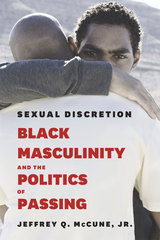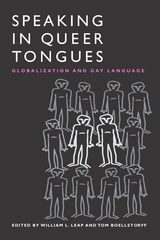117 books about Gay men and 7
start with S
117 books about Gay men and 7
117 books about Gay men
7 start with S start with S
7 start with S start with S

Sex and Isolation
And Other Essays
Bruce Benderson; Foreword by Catherine Texier
University of Wisconsin Press, 2007
Winner of France’s 2004 Prix de Flore for his memoir The Romanian: Story of an Obsession, Bruce Benderson has gained international respect for his controversial opinions and original take on contemporary society. In this collection of essays, Benderson directs his exceptional powers of observation toward some of the most debated, as well as some of the most neglected, issues of our day.
In Sex and Isolation, readers will encounter eccentric street people, Latin American literary geniuses, a French cabaret owner, a transvestite performer, and many other unusual characters; they’ll visit subcultures rarely described in writing and be treated to Benderson’s iconoclastic opinions about culture in former and contemporary urban society. Whether proposing new theories about the relationship between art, entertainment, and sex, analyzing the rise of the Internet and the disappearance of public space, or considering how religion and sexual identity interact, each essay demonstrates sharp wit, surprising insight and some startling intellectual positions.
This is the first American volume of Benderson’s collected essays, featuring both new work and some of his best-known writings, including his famous essay “Toward the New Degeneracy.”
In Sex and Isolation, readers will encounter eccentric street people, Latin American literary geniuses, a French cabaret owner, a transvestite performer, and many other unusual characters; they’ll visit subcultures rarely described in writing and be treated to Benderson’s iconoclastic opinions about culture in former and contemporary urban society. Whether proposing new theories about the relationship between art, entertainment, and sex, analyzing the rise of the Internet and the disappearance of public space, or considering how religion and sexual identity interact, each essay demonstrates sharp wit, surprising insight and some startling intellectual positions.
This is the first American volume of Benderson’s collected essays, featuring both new work and some of his best-known writings, including his famous essay “Toward the New Degeneracy.”
Outstanding University Press Book selection, Foreword Magazine
[more]

Sexual Discretion
Black Masculinity and the Politics of Passing
Jeffrey Q. McCune, Jr.
University of Chicago Press, 2014
African American men who have sex with men while maintaining a heterosexual lifestyle in public are attracting increasing interest from both the general media and scholars. Commonly referred to as “down-low” or “DL” men, many continue to have relationships with girlfriends and wives who remain unaware of their same-sex desires, and in much of the media, DL men have been portrayed as carriers of HIV who spread the virus to black women. Sexual Discretion explores the DL phenomenon, offering refreshingly innovative analysis of the significance of media, space, and ideals of black masculinity in understanding down low communities.
In Sexual Discretion, Jeffrey Q. McCune Jr. provides the first in-depth examination of how the social expectations of black masculinity intersect and complicate expressions of same-sex affection and desire. Within these underground DL communities, men aren’t as highly policed—and thus are able to maintain their public roles as “properly masculine.” McCune draws from sources that range from R&B singer R. Kelly’s epic hip-hopera series Trapped in the Closet to Oprah's high-profile exposé on DL subculture; and from E. Lynn Harris’s contemporary sexual passing novels to McCune’s own interviews and ethnography in nightclubs and online chat rooms. Sexual Discretion details the causes, pressures, and negotiations driving men who rarely disclose their intimate secrets.
In Sexual Discretion, Jeffrey Q. McCune Jr. provides the first in-depth examination of how the social expectations of black masculinity intersect and complicate expressions of same-sex affection and desire. Within these underground DL communities, men aren’t as highly policed—and thus are able to maintain their public roles as “properly masculine.” McCune draws from sources that range from R&B singer R. Kelly’s epic hip-hopera series Trapped in the Closet to Oprah's high-profile exposé on DL subculture; and from E. Lynn Harris’s contemporary sexual passing novels to McCune’s own interviews and ethnography in nightclubs and online chat rooms. Sexual Discretion details the causes, pressures, and negotiations driving men who rarely disclose their intimate secrets.
[more]

Sexuality and the Rise of China
The Post-1990s Gay Generation in Hong Kong, Taiwan, and Mainland China
Travis S. K. Kong
Duke University Press, 2023
In Sexuality and the Rise of China Travis S. K. Kong examines the changing meanings of same-sex identities, communities, and cultures for young Chinese gay men in contemporary Hong Kong, Taiwan, and mainland China. Drawing on ninety life stories, Kong’s transnational queer sociological approach shows the complex interplay between personal biography and the dramatically changing social institutions in these three societies. Kong conceptualizes coming out as relational politics and the queer/tongzhi community and commons as an affective, imaginative means of connecting, governed by homonormative masculinity. He shows how monogamy is a form of cruel optimism and envisions state and sexuality intertwining in different versions of homonationalism in each location. Tracing the alternately diverging and converging paths of being young, "Chinese," gay, and male, Kong reveals how both Western and emerging inter- and intra- Asian queer cultures shape queer/tongzhi experiences. Most significantly, at this historical juncture characterized by the rise of China, Kong criticizes the globalization of sexuality by emphasizing inter-Asia modeling, referencing, and solidarities and debunks the essentializing myth of Chineseness, thereby decolonizing Western sexual knowledge and demonstrating the differential meanings of Chineseness/queerness across the Sinophone world.
[more]

Speaking in Queer Tongues
GLOBALIZATION AND GAY LANGUAGE
Edited by William L. Leap and Tom Boellstorff
University of Illinois Press, 2003
Language is a fundamental tool for shaping identity and community, including the expression (or repression) of sexual desire. Speaking in Queer Tongues investigates the tensions and adaptations that occur when processes of globalization bring one system of gay or lesbian language into contact with another.
Western constructions of gay culture are now circulating widely beyond the boundaries of Western nations due to influences as diverse as Internet communication, global dissemination of entertainment and other media, increased travel and tourism, migration, displacement, and transnational citizenship. The authority claimed by these constructions, and by the linguistic codes embedded in them, is causing them to have a profound impact on public and private expressions of homosexuality in locations as diverse as sub-Saharan Africa, New Zealand, Indonesia and Israel.
Examining a wide range of global cultures, Speaking in Queer Tongues presents essays on topics that include old versus new sexual vocabularies, the rhetoric of gay-oriented magazines and news media, verbal and nonverbalized sexual imagery in poetry and popular culture, and the linguistic consequences of the globalized gay rights movement.
Western constructions of gay culture are now circulating widely beyond the boundaries of Western nations due to influences as diverse as Internet communication, global dissemination of entertainment and other media, increased travel and tourism, migration, displacement, and transnational citizenship. The authority claimed by these constructions, and by the linguistic codes embedded in them, is causing them to have a profound impact on public and private expressions of homosexuality in locations as diverse as sub-Saharan Africa, New Zealand, Indonesia and Israel.
Examining a wide range of global cultures, Speaking in Queer Tongues presents essays on topics that include old versus new sexual vocabularies, the rhetoric of gay-oriented magazines and news media, verbal and nonverbalized sexual imagery in poetry and popular culture, and the linguistic consequences of the globalized gay rights movement.
[more]

States of Desire Revisited
Travels in Gay America
Edmund White
University of Wisconsin Press, 2014
States of Desire Revisited looks back from the twenty-first century at a pivotal moment in the late 1970s: Gay Liberation was a new and flourishing movement of creative culture, political activism, and sexual freedom, just before the 1980s devastation of AIDS. Edmund White traveled America, recording impressions of gay individuals and communities that remain perceptive and captivating today. He noted politicos in D.C. working the system, in-fighting radicals in New York and San Francisco, butch guys in Houston and self-loathing but courteous gentlemen in Memphis, the "Fifties in Deep Freeze" in Kansas City, progressive thinkers with conservative style in Minneapolis and Portland, wealth and beauty in Los Angeles, and, in Santa Fe, a desert retreat for older gays and lesbians since the 1920s.
White frames those past travels with a brief, bracing review of gay America since the 1970s ("now we were all supposed to settle down with a partner in the suburbs and adopt a Korean daughter"), and a reflection on how Internet culture has diminished unique gay places and scenes but brought isolated individuals into a global GLBTQ community.
White frames those past travels with a brief, bracing review of gay America since the 1970s ("now we were all supposed to settle down with a partner in the suburbs and adopt a Korean daughter"), and a reflection on how Internet culture has diminished unique gay places and scenes but brought isolated individuals into a global GLBTQ community.
[more]

Stella Manhattan
Silviano Santiago
Duke University Press, 1994
Twice the winner of the Brazilian national book award, Silviano Santiago caused a sensation in 1985 with the publication of Stella Manhattan, a story of sexual scandal and political intrigue. Set in the Brazilian exile community in New York City in the late 1960s, this noir novel is an electrifying adventure story of a young gay Brazilian man trying to make a go of it in New York.
After being forced from his native country by an unforgiving father who embodies the authoritarian temper of the Brazilian dictatorship and is embarrassed by his son’s homosexuality and transvestism, Stella Manhattan, alter ego of Eduardo da Costa e Silva, lands a job in the Brazilian consulate with the help of his father’s friend, Colonel Valdevinos Vianna. Eduardo is also recruited by Vianna to help him bring his own alter ego, the sadomasochist Black Widow, out of the closet. Transformed by black leather, the Black Widow cruises the streets and bars of New York in search of American flesh. Surrounding the relationship between these two men is a group of Brazilian guerrillas who attempt to press Eduardo into their service in order to entrap the colonel. The guerrillas are at the center of a network of revolutionaries, from the Cubans to the Black Panthers and the Young Lords. Virtually apolitical, Eduardo/Stella is drawn by desire into the conflict between the Brazilian government and its communist opposition.
Eduardo also gets caught in the designs of other memorable characters of various sexual and political persuasions: the reactionary professor Aníbal, confined to a wheelchair, who enjoys watching his wife Leila make love with men she picks up on the street; and Paco, alias La Cucaracha, a flamboyant queen, a rabid anti-Castro Cuban exile, and the most sympathetic of this gallery of outcasts.
Working through two complex themes—politics and sex—Santiago sets the action in New York to emphasize the interaction of the seemingly contradictory impulses of liberation and Americanization that Brazil underwent in the late 1960s. As in Manuel Puig’s Kiss of the Spider Woman, political and sexual liberation cut two ways—neither one necessarily compatible with the other. Exploring the complexities of repression that affect all forms of identity, Santiago mingles tragedy and farce as international intrigues are played out in New York’s Latino and black neighborhoods, and the genteel world of international diplomacy is thrust into the milieu of urban gay street life.
After being forced from his native country by an unforgiving father who embodies the authoritarian temper of the Brazilian dictatorship and is embarrassed by his son’s homosexuality and transvestism, Stella Manhattan, alter ego of Eduardo da Costa e Silva, lands a job in the Brazilian consulate with the help of his father’s friend, Colonel Valdevinos Vianna. Eduardo is also recruited by Vianna to help him bring his own alter ego, the sadomasochist Black Widow, out of the closet. Transformed by black leather, the Black Widow cruises the streets and bars of New York in search of American flesh. Surrounding the relationship between these two men is a group of Brazilian guerrillas who attempt to press Eduardo into their service in order to entrap the colonel. The guerrillas are at the center of a network of revolutionaries, from the Cubans to the Black Panthers and the Young Lords. Virtually apolitical, Eduardo/Stella is drawn by desire into the conflict between the Brazilian government and its communist opposition.
Eduardo also gets caught in the designs of other memorable characters of various sexual and political persuasions: the reactionary professor Aníbal, confined to a wheelchair, who enjoys watching his wife Leila make love with men she picks up on the street; and Paco, alias La Cucaracha, a flamboyant queen, a rabid anti-Castro Cuban exile, and the most sympathetic of this gallery of outcasts.
Working through two complex themes—politics and sex—Santiago sets the action in New York to emphasize the interaction of the seemingly contradictory impulses of liberation and Americanization that Brazil underwent in the late 1960s. As in Manuel Puig’s Kiss of the Spider Woman, political and sexual liberation cut two ways—neither one necessarily compatible with the other. Exploring the complexities of repression that affect all forms of identity, Santiago mingles tragedy and farce as international intrigues are played out in New York’s Latino and black neighborhoods, and the genteel world of international diplomacy is thrust into the milieu of urban gay street life.
[more]

Straight Korean Female Fans and Their Gay Fantasies
Jungmin Kwon
University of Iowa Press, 2019
This book is about ardent Korean female fans of gay representation in the media, their status in contemporary Korean society, their relationship with other groups such as the gay population, and, above all, their contribution to reshaping the Korean media’s portrayal of gay people. Jungmin Kwon names the Korean female fandom for gay portrayals as “FANtasy” subculture, and argues that it adds to the present visibility of the gay body in Korean mainstream media, thus helping to change the public’s perspective toward sexually marginalized groups.
The FANtasy subculture started forming around text-based media, such as yaoi, fan fiction, and U.S. gay-themed dramas (like Will & Grace), and has been influenced by diverse social, political, and economic conditions, such as the democratization of Korea, an open policy toward foreign media products, the diffusion of consumerism, government investment in the culture, the Hollywoodization of the film industry, and the popularity of Korean culture abroad. While much scholarly attention has been paid to female fandom for homoerotic cultural texts in many countries, this book seeks to explore a relatively neglected aspect of the subculture: its location in and influence on Korean society at large.
The FANtasy subculture started forming around text-based media, such as yaoi, fan fiction, and U.S. gay-themed dramas (like Will & Grace), and has been influenced by diverse social, political, and economic conditions, such as the democratization of Korea, an open policy toward foreign media products, the diffusion of consumerism, government investment in the culture, the Hollywoodization of the film industry, and the popularity of Korean culture abroad. While much scholarly attention has been paid to female fandom for homoerotic cultural texts in many countries, this book seeks to explore a relatively neglected aspect of the subculture: its location in and influence on Korean society at large.
[more]
READERS
Browse our collection.
PUBLISHERS
See BiblioVault's publisher services.
STUDENT SERVICES
Files for college accessibility offices.
UChicago Accessibility Resources
home | accessibility | search | about | contact us
BiblioVault ® 2001 - 2024
The University of Chicago Press









